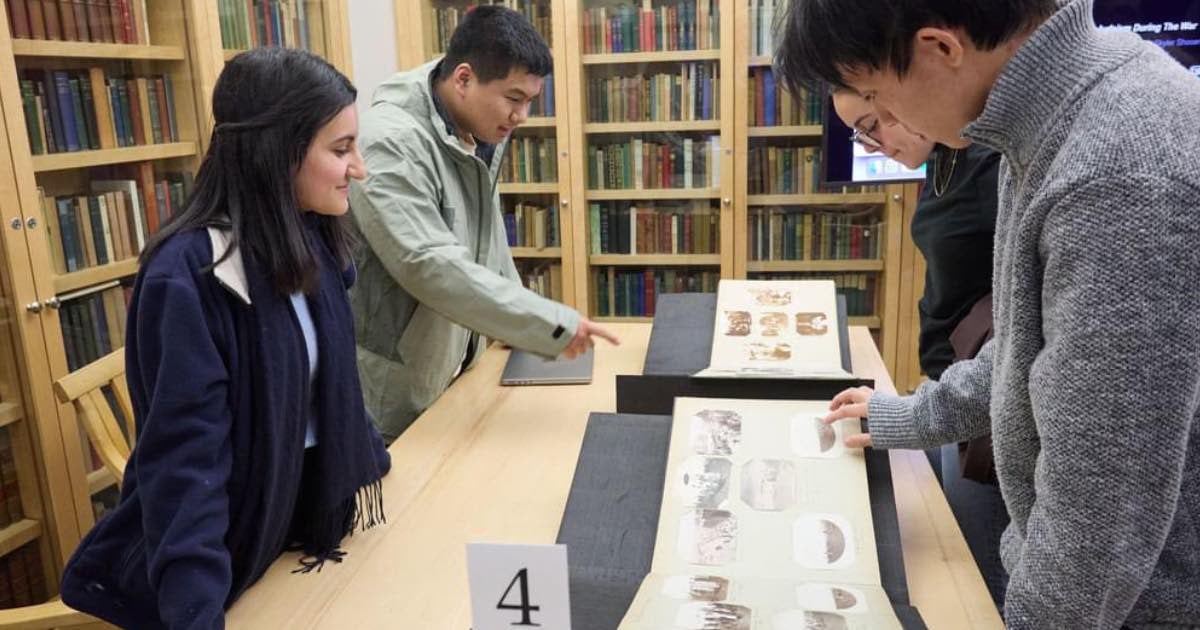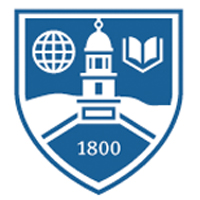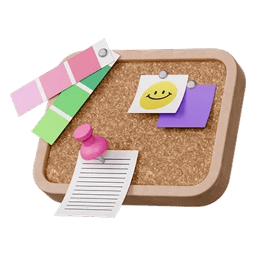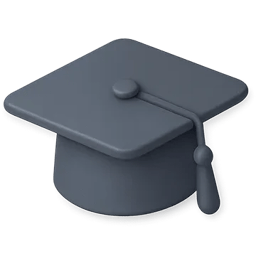My background
My name is Douae Loukili and I’m from Morocco, Casablanca. I spent most of my academic journey in Morocco. However, toward the end of my sophomore year, I received a scholarship to spend my final two years of high school at an international boarding school called the Eastern Mediterranean International School.
I've always dreamt of studying abroad, and my main reasons included wanting to be in a new environment, meeting people from all over the world, and overall having better educational and extracurricular experiences.
While applying abroad, I didn't have a helpful counselor or anyone to accompany me through the process, which is sadly the case for most international students. But it wasn't just me against the world; I found a plethora of online resources, including websites, videos, and reels—Borderless also played a significant role. Everything is on the Internet, use it wisely!
Why the US?
I chose the US due to the reputation of its institutions and amazing opportunities. I feel like its educational system is the one that matches my learning style best. Nonetheless, I did consider other countries such as France and the Netherlands throughout my college applications to maximize my chances of admission to a reputable university abroad.

Why Middlebury?
While initially Middlebury wasn't one of my dream schools, I now see how it is the perfect fit for me, not only on an academic level but also on a personal level.
Some of its characteristics that made it stand out to me before and are now some of my favorite things about the university include the small student population, its location right in the middle of the mountains of Vermont, a strong language learning program, and an emphasis on intellectual curiosity.
My application stats
My stats weren't the greatest, taking into consideration the competitiveness of college application pools in the past couple of years. My GPA from my Moroccan high school was pretty high, being 95 percent. However, my boarding school grades declined, mainly due to the change in language of instruction and educational system, and were close to 3.5. I was also taking IB courses at the time, and my predicted grade was a 42/44. Finally, regarding my SAT, my score was pretty low and I therefore decided not to send it to colleges, opting for test-optional applications.
Financial Aid
Most private universities in the US offer need-blind aid for Americans; however only a select few offer it for international students, meaning that financial need plays a role in whether you are accepted or not.
At Middlebury College (need-aware for internationals), I was lucky to receive need-based aid that covered all of my tuition costs and part of my living expenses (room & board). Overall it amounts to a scholarship of 80-90%. The school also offers a lot of advantages to students on financial aid including covering some medical costs, books and school supplies, winter clothes to survive the Vermont winter, coupons for restaurants and supermarkets if you can’t afford to go back home in the breaks, etc.
My extracurriculars
My extracurricular activities were mainly focused on video making, language learning, and peacebuilding. This includes content creation on social media, a peace documentary I worked on at my previous high school, and participation in peacebuilding conferences. In general, I tried to stay away from more standard extracurriculars and made sure I only spent my time doing things I was truly passionate about and showed consistency in doing those things.
My essays
For my personal statement, I focused on the process of peacemaking in the Middle East and how I learned to cope with opposing political views. I wrote most of my essays about all the different experiences I had growing up in Morocco and attending a boarding school for peace.
The Application process
I started brainstorming ideas and learning about the overall process of US application in the summer following my junior year, and therefore decided not to send it to colleges, opting for test-optional applications. I was still writing supplementals the day that I sent my application, so pretty much all very last minute. I really undermined the time I would need, and, in retrospect, I wish I would have planned the process more carefully, as it would have saved me from a lot of unnecessary stress. So I would genuinely advise anyone applying to start sooner rather than later, and if you find yourself in my situation, know that you can still make it work.
Academics at Middlebury
At Middlebury and most of the other liberal arts colleges, you can declare your major up until the second semester of your sophomore year. Personally, I started out my freshman year with a big interest in International Relations, but slowly gained interest in economics after taking some classes. I declared my major in Economics at the end of my first year, but I still get the opportunity to explore courses in other disciplines which provides a great opportunity to continually learn new things outside of my major and meet new people.
Middlebury Student body
While about 90 percent of the student population is American, my social circles are basically made up of international students. We had a 3-day pre-orientation in our freshman year which allowed me to get to know all the international students in my grade (about 70), and I later realized that those were the people I spent most of my time with. While many complain about the lack of diversity, I personally think that the school does an amazing job trying to become more diverse and inclusive. Regarding making friends, people at Middlebury not only have a lot in common but are also really nice and, honestly, fascinating. You can never get bored with them, everyone has really unique and amazing life stories, making it difficult to end conversations with people.

Student life at Middlebury
My favorite aspect of studying at Middlebury is that education isn't solely focused on studies and classes, but also encompasses extracurriculars and professional life. During my second semester, I worked a variety of jobs, including as a waiter for the language tables, a marketing intern for the Marketing Office, and a cashier at an on-campus restaurant, while still managing my classes and other extracurricular activities. During this year, I mainly focused on exploring the various extracurricular activities offered by the university and determining what I'd like to pursue in the future. I was part of a program named the Rohatyn Global Scholars which provided a great opportunity to continually learn new things outside of my major and meet new people. That gave me the opportunity to travel to DC for a week to learn about various careers in global affairs in the capital. I also participated in Model United Nations, which allowed me to travel to the West Coast and attend the MUN hosted by UCLA. Other clubs I was involved in include the Investment Committee, the Consulting Group, or the WANAS cultural club. Finally, I also got to take skiing courses in the ski resort owned by Middlebury, which was one of the highlights of my life in Vermont! About internship support, Middlebury offers CCI, which provides expertise on preparation for careers through different workshops, advisors, and opportunities. They are certainly very helpful, but it's true that our status of F-1 visas poses many limits to the opportunities we can take advantage of. Therefore, during the first couple of years, most international students will choose to pursue internships in their home countries, unless they are offered internships at the college.

A little tip for future applicants
And to end, as cliche as this advice might sound, stay true to yourself and follow your passions. Don’t try to fit a mold you think the university wants to see. Stay authentic, and remember: you’ll end up where you’re meant to be. Good luck, and don’t lose faith!








